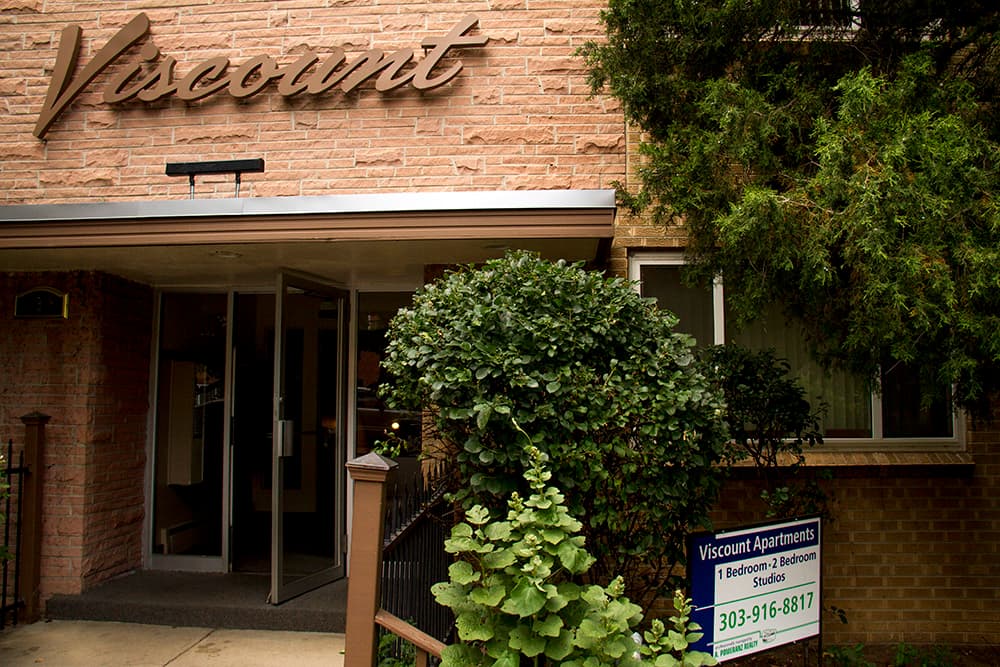Denver's going to launch a pilot program this summer to provide emergency housing assistance to families facing eviction.
It's one of a number of steps the city is taking to offer concrete financial help to those most affected by the displacement and gentrification taking place in many Denver neighborhoods. The city also has an outreach worker in eviction court and is trying to provide more timely assistance to tenants who end up on the street because their housing isn't up to health and safety standards.
These programs, which the city announced Wednesday, are part of the 30 action items the city rolled out at a housing summit last week. Advocates are also pressing the city to adopt more renter protections as ordinances, given that Colorado is considered a very landlord-friendly state.
According to a request for proposals from the city, the Office of Economic Development intends to make up to $1.5 million available to offer emergency housing to families facing eviction and to those facing other financial crises, like a sudden rent increase or unsafe living conditions. The program will also offer utility assistance to renters and homeowners. The money will come from the permanent affordable housing fund created by the City Council last year. That program will roll out on a pilot basis this summer.
The city also placed an outreach worker in eviction court to offer help with first month's rent or security deposits to people who have been evicted and need help to get into a new place. The city has had a program like this for years, but in the past, renters had to know about it and seek out help. Now the city is bringing that information to people when they need it most. The outreach worker can also connect people to case management services, food stamps, cash assistance and other benefits that might get them through this emergency.
"This opens up that world of assistance to people who wouldn't otherwise know about it," said Denver Human Services spokeswoman Julie Smith.
During a 30-day pilot in March, the city helped nine households with rental or deposit assistance and helped 36 others with additional resources. Smith said that's about the normal number of families that get rent or deposit assistance in a month, but normally March would see fewer requests for help because people are getting their tax returns.
So March is a less-than-ideal month for drawing conclusions. The outreach worker is going to remain in eviction court for the remainder of the year, as the city collects information about how many people are helped in court and whether there's reduction in people seeking help at DHS offices, Smith said. The information from those additional months will shape a 2018 budget request.
Sheriff's deputies, who serve eviction notices, are also carrying information about assistance and giving it to tenants.
In addition, the Department of Environmental Health is analyzing data around violations of safety conditions in housing to see if there are ways to help tenants who need to leave not because they fell behind on rent but because their landlord didn't maintain their property.
The city is also looking to "identify impact investments to mitigate displacement in highly vulnerable neighborhoods." Exactly what that looks like, we'll all be interested to find out.
These programs deal largely with direct financial assistance, which is what you need in an emergency. But advocates want the city to also look at ordinances that would give tenants more rights. One of the more significant changes -- requiring landlords to provide some "just cause" for evictions -- would require changes in state law. So would rent control, which is a controversial approach that many economists think does more harm than good -- but that nonetheless keeps coming up.
Some of the changes the city could undertake on its own include:
- limiting criminal background checks to the most recent seven years, excluding those who have been convicted of a violent crime or a sex offense;
- prohibiting landlords from discriminating against tenants who get income from somewhere other than a job, such as housing vouches, child support or alimony;
- capping application fees to the actual cost of running a criminal and credit check;
- creating a rental property and landlord registry.
Correction: This story has been updated to reflect that the emergency housing assistance will not only be available to people facing eviction but also to those experiencing other housing crises.














